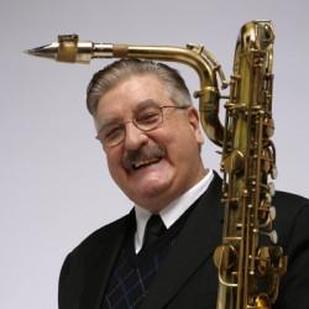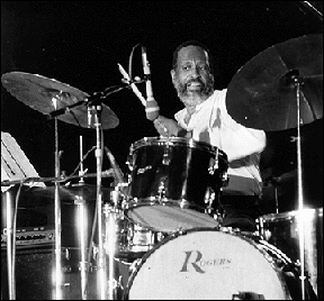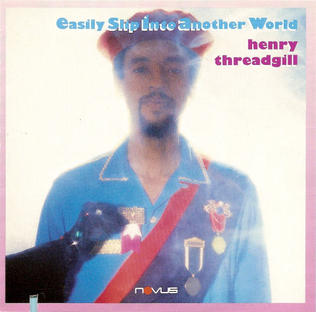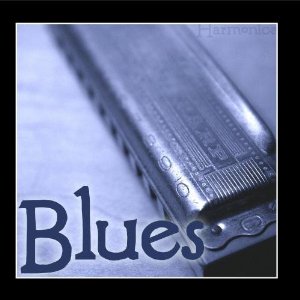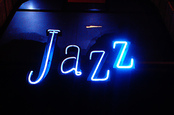JAZZ ARTISTS' BIRTHDAYS:
Joe Tempery (1929) - Most associated with the baritone saxophone and bass clarinet, Joe Temperley is the perfect musician to fill in for Harry Carney during recreations of Duke Ellington's music, a role that has often overshadowed his own fine voice. Temperley actually started on the alto and recorded on tenor with English bands led by Harry Parry (1949), Jack Parnell, Tony Crombie, and Tommy Whittle. He stuck to baritone during a long association with Humphrey Lyttelton's popular band (1958-1965). In 1965, Temperley moved to New York, working with a variety of big bands (including Woody Herman, Buddy Rich, Thad Jones-Mel Lewis, and Clark Terry). In 1974, he became the first replacement for Harry Carney with the Mercer Ellington Orchestra and then freelanced with the who's who of jazz including (starting in 1990) the Lincoln Center Jazz Orchestra under the direction of Wynton Marsalis. Temperley has several fine albums out as a leaderAmong them, Nightingale (1991), Sunbeam and Thundercloud with pianist Dave McKenna (1996), With Every Breath (1998) and Double Duke (1999). He is an original member of the Jazz at Lincoln Center Orchestra, and serves on the faculty of the Juilliard School for Jazz Studies. He is a guest mentor and a co-founder of the Fife Youth Jazz Orchestra (also known as FYJO) program in Scotland, which now enrolls 30 young musicians ages 7–18.
Steve McCall (1933) - One of the finest drummers in free jazz, Steve McCall was a subtle improviser who could keep a pulse going without actually stating the beat. He played early on with Lucky Carmichael, a blues singer. McCall met Muhal Richard Abrams in 1961 and became a founding member of the AACM in 1965. Based in Chicago, McCall played with hard bop groups, but made more of an impact performing with top avant-garde players, including Anthony Braxton, Leroy Jenkins, Joseph Jarman, Roscoe Mitchell, and Leo Smith. McCall was in Paris during 1967-1970, playing and recording with Braxton, Marion Brown, and Gunter Hampel. He returned to Chicago in 1970, was on a session with Dexter Gordon and Gene Ammons, and was in the trio Reflection with Henry Threadgill and Fred Hopkins. After another year in Europe, McCall went to New York in 1975, where he reunited with Threadgill and Hopkins and they formed the successful avant-garde group Air. McCall was with Air until the early '80s, also recording with Chico Freeman, Arthur Blythe, and David Murray. McCall played with Cecil Taylor's Unit in 1985 and performed regularly with Roscoe Mitchell's Quartet up until his death from a stroke. Although he was on a lot of important sessions (including dates with Joseph Jarman, Fred Anderson, and Murray's octet), Steve McCall never led an album of his own. In the late '90s, Chicago label Okka Disk released a 1980 duo recording of McCall and Anderson entitled Vintage Duets. Steve McCall died on May 24, 1989.
JAZZ ALBUM RECORDED:
Henry Threadgill Sextett – Easily Slip Into Another World (1987)
Track Listing:
1. I Can’t Wait To Get Home
2. Black Hands Bejewelled
3. Spotted Dick Is Pudding
4. Let Me Look Down Your Throat Or
Say Ah
5. My Rock
6. Hall
7. Award The Squadtett
Review by Stephen Cook at Allmusic:
This Henry Threadgill title is one of three excellent recordings the jazz alto and flute player made for Novus in the late '80s. He is joined here by his stellar sextet (actually a septet) comprised of trumpeter Rasul Saddik, trombonist Frank Lacy, cellist Diedre Murray, bassist Fred Hopkins, and drummers Pheeroan Aklaff and Reggie Nicholson. Like avant-garde contemporaries Anthony Braxton and Muhal Richard Abrams, Threadgill created a seamless mix of improvisation space and complex arrangements to galvanize his musicians. Threadgill, though, went further by exploring a wider range of styles. The positive effects are made evident here by the group's inspired solos and ensemble playing on everything from the New Orleans' march "Black Hands Bejeweled" and Olu Dara's calypso-funk tune "I Can't Wait to Get Home" to the manic, free-form number "Hall" and sprechstimme-jazz piece "My Rock." Threadgill's acerbic and mercurial alto work seem to point to the dark humor underlying these and many of his other compositions, while Lacy's warbling and growling trombone statements bask in their inherent joy; the two sentiments made respectively clear on the expressionist-flavored "Let Me Look Down Your Throat or Say Ah" and the ecstatic, Raymond Scott-inspired "Award the Squadtett." Easily Slip Into Another World and Threadgill's other Novus titles (You Know the Number and Rag Bush and All) offer a fine introduction to the work of one of jazz's best and most underrated composers and improvisers.
1. I Can’t Wait To Get Home
2. Black Hands Bejewelled
3. Spotted Dick Is Pudding
4. Let Me Look Down Your Throat Or
Say Ah
5. My Rock
6. Hall
7. Award The Squadtett
Review by Stephen Cook at Allmusic:
This Henry Threadgill title is one of three excellent recordings the jazz alto and flute player made for Novus in the late '80s. He is joined here by his stellar sextet (actually a septet) comprised of trumpeter Rasul Saddik, trombonist Frank Lacy, cellist Diedre Murray, bassist Fred Hopkins, and drummers Pheeroan Aklaff and Reggie Nicholson. Like avant-garde contemporaries Anthony Braxton and Muhal Richard Abrams, Threadgill created a seamless mix of improvisation space and complex arrangements to galvanize his musicians. Threadgill, though, went further by exploring a wider range of styles. The positive effects are made evident here by the group's inspired solos and ensemble playing on everything from the New Orleans' march "Black Hands Bejeweled" and Olu Dara's calypso-funk tune "I Can't Wait to Get Home" to the manic, free-form number "Hall" and sprechstimme-jazz piece "My Rock." Threadgill's acerbic and mercurial alto work seem to point to the dark humor underlying these and many of his other compositions, while Lacy's warbling and growling trombone statements bask in their inherent joy; the two sentiments made respectively clear on the expressionist-flavored "Let Me Look Down Your Throat or Say Ah" and the ecstatic, Raymond Scott-inspired "Award the Squadtett." Easily Slip Into Another World and Threadgill's other Novus titles (You Know the Number and Rag Bush and All) offer a fine introduction to the work of one of jazz's best and most underrated composers and improvisers.
